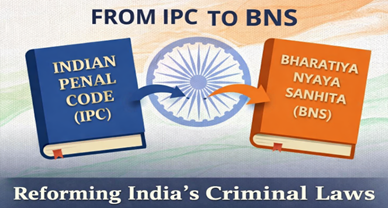MSME – Provisions
Introduction
MSMEs, an acronym for Micros, Small and Medium Enterprises are the building blocks of any developing nations’ economy. For multiple industries which come under the classification criteria, an MSME license is preferred since it has the following incentives:
- Government support in the form of incentives and subsidies.
- Lower rate of interest.
- Availability of collateral free loans.
- Priority in case of compliance and registration approvals by Central and State Government.
- Multiple tax exemptions, reduction in electricity charges and reduced rates for registrations (example: patent registrations, etc).
Sectors under MSME
As per the MSME Development Act, 2006, the MSME industry has two 2 sectors: the manufacturing sector and the service sector. In India, the manufacturing end of the industry comprises of at least 6% of the GDP and the service end contributed to almost 25% of the GDP.
As enshrined within the provision, the manufacturing sector has the following classification, based on investment in Plant & Machinery[1]:
- Micro Enterprise: Up to Rs. 25 Lakhs.
- Small Enterprise: More than Rs. 25 Lakhs but less than Rs. 5 Crores.
- Medium Enterprise: More than Rs. 5 Crores but less than Rs. 10 Crores.
For the service sector, the classification on the basis of investment in equipment is as follows[2]:
- Micro Enterprise: Up to Rs. 10 Lakhs
- Small Enterprise: More than Rs. 10 Lakhs but less than Rs. 2 Crores.
- Medium Enterprise: More than Rs. 2 Crores but less than Rs. 5 Crores.
Revised Definition
As per notification by the Central Government, under the Atmanirbhar Bharat Abhiyan (ABA), in light of the ongoing COVID-19 pandemic and to strengthen the economic framework, the government revised the classification criteria, removing the distinction between Manufacturing and Service Industries, by inserting composite criteria for both, investment and annual turnover[3]:
- Micro Enterprise: Investment up to Rs. 1 Crore and Turnover up to Rs. 5 Crore.
- Small Enterprise: Investment up to Rs. 10 Crore and Turnover up to Rs. 50 Crore.
- Medium Enterprise: Investment up to Rs. 50 Crore and Turnover up to Rs. 250 Crore.
This scheme also includes multiple additional provisions granted to the MSME sectors in the form of more incentives, collateral- free loans and subsidies.
Entities Covered
Further ahead, the types of entities covered under the Micro and Small entities are:
- Company
- Partnership Firm
- Association of Persons
- Hindu Undivided Family
- Co-operative Society
- Proprietorship
‘Service’ under MSME
Additionally, as a clarification for what constitutes the service industry, the Ministry of Micro, Small and Medium Enterprises, under a clarification order dated 16.11.2007, released an illustrative list of activities classified as service activities as accepted under WTO/GATT regulations, as can be acknowledged as service enterprise under the MSMED Act, 2006, which spans across almost all possible service industries in the country.
Obligations for MSMEs
The documentary obligations to be fulfilled in order to be registered as MSME, under the prescribed Act are:
- Aadhar Card of the Applicant.
- Pand Card of the Applicant (if a proprietor); Company/Firm Pan Card (in case of Company/Firm).
- Bank Account Details
- Office and Plant Locations address and proof
- Articles of Association
- Memorandum of Association
- Bills of the equipment[4] employed
The application for MSME registration is filed on the Ministry of Corporate Affairs website (MSME Registration Portal) in prescribed format. The documents attached with the application are to be self- certified and uploaded. On acceptance of application, a registered E-mail ID with UdyogAadhar Number[5] and Certificate of Registration will be provided. The registration can be done offline as well.
MSME FORM 1
Introduced by the Ministry of Corporate Affairs on May 1st, 2019, the e-form named MSME 1, which required all companies obtaining services/goods from Micro or Small Enterprises[6] and whose payments for such goods or services availed were due, exceeding 45 days, from the date of acceptance[7] or deemed acceptance[8] of the mentioned goods or services. This was released under the Specified Companies (furnishing of information about payment to micro and small enterprise suppliers) Order, 2019, dated January 22, 2019. This order required the said companies to submit a half- yearly return to the MCA stating the amount of payment due to the Micro and Small Enterprises and the reasons for delay in payment, along with all details of outstanding dues[9]. This was to be done by 30th May, 2019.
Qualifying Criteria
The Specified Company is every public and private company, Micro or Small Companies, which qualify the following criteria:
- Company received Goods and/or Services from Micro or Small Enterprise.
- Payment must be due/not paid to such Micro or Small Enterprise for 46 days from days of acceptance of such good and/or service.
Time Period
The form is to be filed within 30 days of completion of corresponding half- year. Essentially, every company is required to file the MSME Form 1 in the form of Half- yearly return, by 31st October of that year (for the period from April to September) and once again by 30th April of the next year (for the period of October to March), every financial year, relating to the outstanding payment to MSMEs.
For Example: for the financial year 2020-2021, for every specified company qualifying for the submission of MSME Form 1, based on above criteria, the first filing is to be done by 31st October, 2020 (for the half year period of April to September, 2020) and then again by 30th April, 2021 (for the half year period of October, 2020 to March, 2021).
Exceptions to Rule
- Only for the Specified Companies whose payment to supplier MSME exceeds 45 days from the date of acceptance or deemed acceptance of goods and/or services[10].
- If the payment against supplier exceeds 45 days but the supplier gives a declaration that they do not fall under the category of Micro or Small Enterprises.
Penalty
As per provisions of Section 405(4) of the Companies Act, 2013, on Company, A fine, extendable to Rs. 25,000 is applicable for non-compliance. Further, any officer in default[11], under the Specified Company shall be punishable with imprisonment which can be extended to a period of 6 months or fine ranging from Rs. 25,000 up to Rs. 3 Lakhs, or both.
Author: Suvangana Agarwal, Litigation Associate and Prishita Chadha, a 4th-year student of Symbiosis Law School, NOIDA, intern at IP and Legal Filings and can be reached at support@ipandlegalfilings.com
References:
[1]Notified vide S.O. 1642(E) dtd.29-09-2006
[2]Notified vide S.O. 1642(E) dtd.29-09-2006
[3]Notified vide S.O. 1602(E) dtd.01-06-2020
[4]As per definition and clarification notification- Office Memorandum No. 16(1)/2016 dtd. 31-07-2019, it is given that ‘equipment’ shall include anything that is directly held or used in the supply of goods or services for carrying out service activities.
[5] The UdyogAadhar Certificate replaced the MSME Certificate, as was used earlier, in 2015. It constitutes the same provisions and benefits, under a different name.
[6]Not applicable to outstanding sums due to Medium Enterprises.
[7]Explanation (i) to Section 2(b) of the MSMED Act, 2006.
[8]Explanation (ii) to Section 2(b) of the MSMED Act, 2006.
[9]Details include total outstanding amount on the date of MSME 1 being deployed, details of the specific company (name, address, PAN and CIN), particulars of the supplier Enterprise (name, PAN), date from which amount is due and reason for delay in payment.
[10]Under Section 9 of the MSMED Act, 2006.
[11]Director, CFO and/or CS


